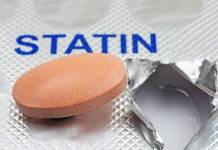
The augmented buildup of the intestinal bacterial metabolite in patients suffering from chronic kidney disease, also known as chronic renal disease, could raise the danger of heart ailment and premature death, says a study to be published in the upcoming issue of Journal of the American Society of Nephrology.
CKD is a state characterized by the slow and steady loss of renal functions over a period. Nearly 10% of the human population suffers from CKD.
The study revealed an accretion of phenylacetylglutamine (PAG) produced by rectal bacteria has a role in elevating the risk of cardiac ailments in patients with renal diseases.
There is an increased perception that bacterium in the rectum which exhibit commensalism plays a role in different illness like obesity and diabetes mellitus.
Gut flora, intestinal microbiota, or gastrointestinal microbiota are a group of microorganism which inhabits the digestive tracts of humans.
They are one of the largest groups of bacteria. The human entrail harbors the most significant number of organisms as compared to any other part of the body.
The study analyzed 488 subjects with CKD and came to the conclusion that gut microbiota could be a contributing factor to the disease burden. It will now pave the way for better therapeutic intervention with dietary as well as medicines to improve the quality of life and prognosis of persons afflicted with kidney afflictions.
Individuals suffering from with CKD are characterized by a gradual loss of kidney functions which could be extent from months to years.
The symptoms are varied and could include debility and falling appetite. CKD is common in persons suffering from hypertension, diabetes and is also hereditary.
Associated risks include cardiovascular complications, blood loss, pericarditis or renal osteodystrophy. The state is often diagnosed accidently when a person visits a doctor for other ailments like Heart disorders or anemia.











